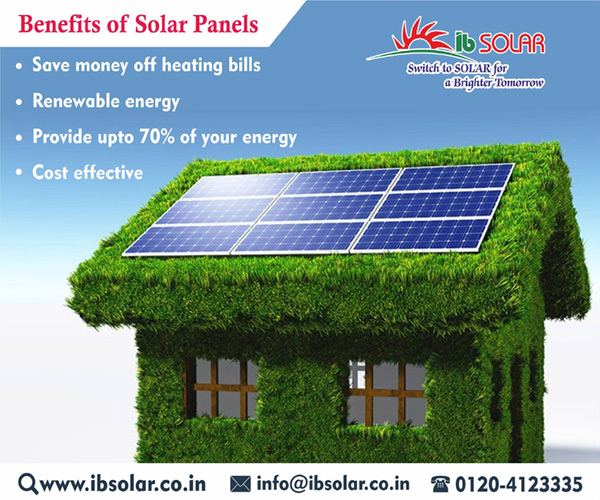Exactly How Solar Power Can Assist You Conserve Money and Minimize Your Carbon Footprint
The integration of solar energy right into your energy profile offers a compelling possibility for both monetary savings and environmental stewardship. By taking advantage of the sun's energy, property owners can significantly lower their month-to-month energy costs while additionally safeguarding versus the changability of future energy costs. In addition, the shift to solar adds to a significant reduction in carbon discharges, aligning individual money with wider ecological goals. As different government rewards end up being offered, the inquiry occurs: just how can one efficiently navigate the preliminary financial investments and ongoing benefits of solar technology to make the most of both economic and ecological gains?
Recognizing Solar Power Cost Savings
While the shift to solar energy usually involves an initial investment, comprehending solar power cost savings is important for property owners and businesses alike. Solar power systems can considerably reduce power bills by using the sunlight's energy, converting into considerable lasting economic benefits.
Moreover, solar energy systems might receive different economic rewards, including tax obligation credits and rebates, further enhancing their cost-effectiveness. The accessibility of web metering permits individuals to sell excess power back to the grid, producing an additional profits stream. These factors add to the overall savings associated with solar power.

Along with direct monetary financial savings, solar energy uses the added advantage of enhancing home value. Homes outfitted with solar panels are commonly much more eye-catching to buyers, as they assure lower power prices - Simply Solar Illinois. Understanding these aspects is vital for any individual considering solar energy, as it highlights not just the possible monetary gains, but likewise the broader ecological and economic benefits of adopting renewable resource services
Preliminary Prices vs. Long-Term Advantages
When reviewing solar power, it is necessary to evaluate the initial costs versus the long-lasting benefits. The in advance financial investment for solar panels, installment, and relevant devices can be significant, typically varying from $15,000 to $30,000, depending upon the system size and home energy needs. This first expenditure might prevent some house owners; nonetheless, it is critical to consider the potential savings over time.
Once set up, solar power systems can dramatically reduce and even remove monthly power costs, causing considerable long-lasting financial advantages. Research studies suggest that house owners can conserve anywhere from $10,000 to $30,000 over the lifespan of their solar system, normally 25 years. Furthermore, several states supply incentives, tax obligation credit scores, and refunds that can counter preliminary prices, making solar more easily accessible.

Reducing Your Carbon Impact
Lowering your carbon footprint is an essential factor to consider in today's eco mindful culture, and adopting solar power is one of one of the most efficient approaches to attain this goal. Solar energy is a tidy, eco-friendly resource that dramatically reduces reliance on fossil gas, which are major factors to greenhouse gas exhausts.

Additionally, the prevalent fostering of solar technology urges the growth of eco-friendly tasks and sustains advancements in energy storage space and efficiency. The even more people and organizations spend in solar power, the better the cumulative decrease in carbon exhausts, promoting a cleaner environment for future generations.
Federal Government Motivations and Discounts
Embracing solar energy not just benefits the environment but can additionally result in substantial monetary cost savings, particularly with the accessibility of government incentives and discounts. Various government, state, and regional programs are created to urge homeowners and organizations to spend in solar power systems, making the shift a lot more economical.
One of one of the most prominent motivations is the Federal Financial Investment Tax Obligation Credit Score (ITC), which allows solar system owners to deduct a substantial percentage of the installation costs from their government tax obligations. This reward has been crucial in decreasing the upfront expenditures related to solar power systems. Furthermore, several states use their own tax credit ratings, grants, and discounts that can even more enhance savings.
In addition, some neighborhood federal governments supply real estate tax exceptions for solar setups, ensuring that house owners do not face raised real estate tax as a result of their renewable resource financial investments. Energy companies might likewise provide rewards, including internet metering and feed-in tariffs, which permit solar power users to sell excess power back to the grid.
Picking the Right Planetary System
Selecting the ideal solar system is vital for maximizing energy efficiency and monetary advantages. The choice rests on several elements, including energy needs, spending plan, and available room. Property owners must start by examining their electrical energy usage to identify the system size needed for ideal performance.
Next, consider the various sorts of solar modern technologies readily available. Simply Solar Illinois. Photovoltaic Or Pv (PV) panels are the most usual, transforming sunlight directly right into electricity, while solar thermal systems concentrate on home heating water. Each kind has distinct advantages relying on individual demands
Budget plan factors to consider are additionally critical. Preliminary installment expenses can differ dramatically, so it is very important to contrast quotes from multiple linked here carriers and check out financing alternatives. Government rewards and refunds can better lower the financial concern, making planetary systems a lot more accessible.
Final Thought
In summary, solar energy provides a sensible service for achieving substantial expense financial savings while all at once minimizing carbon discharges. The initial investment, though significant, yields considerable long-term financial benefits, with prospective cost savings ranging from $10,000 to $30,000 over 25 years. The environmental advantages of solar power click to read more contribute to sustainable practices essential for combating environment change. Government motivations enhance the usefulness of solar modern technology adoption, encouraging a transition towards a cleaner, a lot more economically reliable energy source.